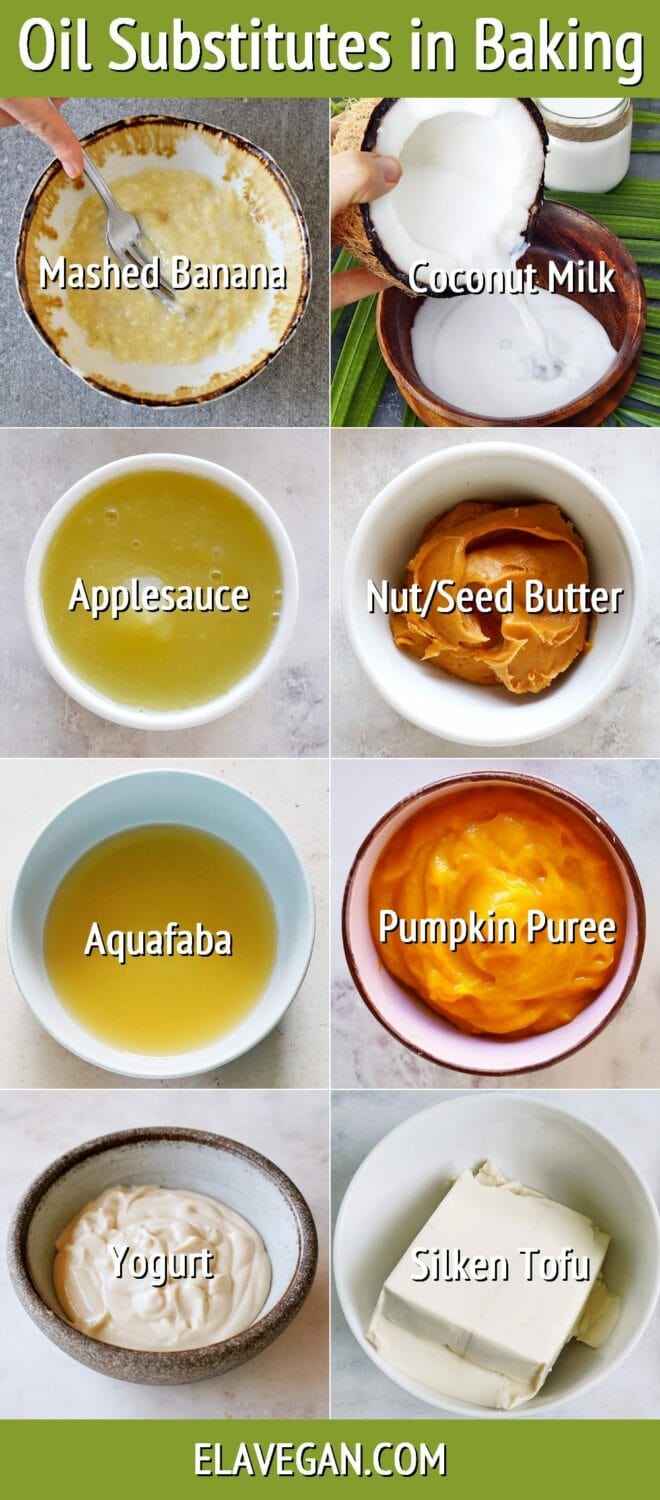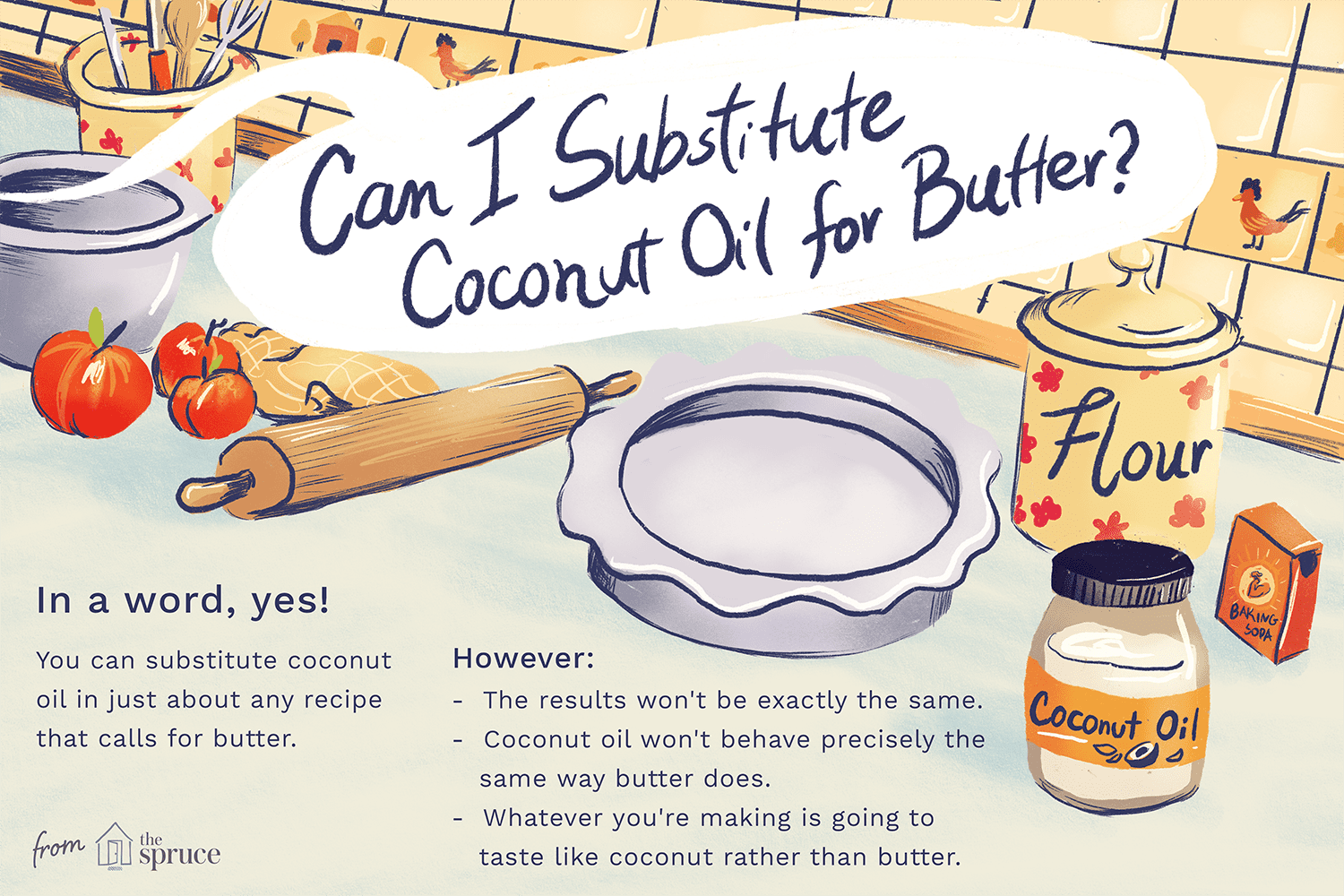Introduction: The Baking Dilemma
Baking at home is a joy—until you realize you’re out of coconut oil. Or maybe you’re avoiding it for dietary reasons. Whatever the case, finding a reliable substitute for coconut oil in baking can feel like a challenge. With so many options, how do you pick one that keeps your treats moist, flavorful, and healthy? This guide breaks down the top alternatives, compares their pros and cons, and shares real-life baking experiences, so you can bake with confidence and creativity.
Why Seek a Substitute for Coconut Oil in Baking?
Coconut oil is popular in baking because it’s solid at room temperature, adds moisture, and brings a subtle flavor. However, it is worth noting that not everyone loves its taste, and some want to avoid its high saturated fat content. According to OSF HealthCare, coconut oil contains about 92% saturated fat, much higher than olive or canola oil, which have around 15%. That’s a big difference, especially if you’re watching your cholesterol.
There’s also the issue of availability and dietary needs. For instance, vegans may want a plant-based option, while others might need a nut-free alternative due to allergies. Therefore, knowing your choices helps you adapt recipes to your preferences or pantry.

Top Substitutes for Coconut Oil in Baking
Let’s get straight to the point: what can you use as a substitute for coconut oil in baking? Here are the most popular options, along with their unique benefits and quirks.
Butter: The Classic Choice
Butter is the go-to substitute for coconut oil in baking. It’s a 1: replacement, meaning you use the same amount as you would coconut oil. Butter makes baked goods richer and gives cookies a chewier texture. However, it’s not vegan, and it does add a different flavor profile.
If you’re after a plant-based solution, vegan butter is an excellent alternative. Brands like Miyoko’s offer vegan options that work well in cookies, cakes, and muffins. Just remember, butter contains water, so your final product might be a bit lighter and airier than with coconut oil.
Vegetable Oils: Neutral and Versatile
Neutral oils like sunflower, grapeseed, and canola are easy substitutes. They’re liquid at room temperature, so they blend smoothly into batters. Sunflower oil is especially good for breads and muffins, offering a mild taste and a vegan-friendly profile. Grapeseed oil is another solid pick, especially for recipes where you want a neutral flavor.
However, these oils won’t give your baked goods the same structure as coconut oil or butter. For recipes that rely on solid fats—like pie crusts—stick to options that are also solid at room temperature.
Ghee: The Nutty Option
Ghee, a type of clarified butter, brings a subtle nutty flavor and is also solid at room temperature. It’s great for those who are lactose intolerant, as most milk solids are removed during the clarification process. Ghee can be used in a 1: ratio for coconut oil and works well in both sweet and savory baked goods.
Applesauce: A Healthier Twist
For a lower-fat, vegan-friendly substitute for coconut oil in baking, applesauce is a surprising hero. It adds moisture and a touch of sweetness. Use unsweetened applesauce to avoid making your treats too sugary. You can swap coconut oil for applesauce in a 1: ratio, but expect a change in texture—your baked goods will be softer and less rich.
Interestingly, applesauce is ideal for muffins, quick breads, and cakes where moisture is key. However, it’s not the best choice for recipes where a crisp or flaky texture is important.
Nut and Seed Butters: Flavorful and Filling
Peanut, almond, and sunflower seed butters are creative substitutes that add healthy fats and a distinct flavor. They work best in recipes where you don’t mind a nutty taste, like brownies or breakfast cookies. Use them in the same quantity as coconut oil, but be ready for a denser, chewier result.
Comparison Analysis Table: Butter vs. Applesauce
| Project A: Butter | Project B: Applesauce |
|---|---|
| Rich, creamy flavor | Light, fruity taste |
| Chewy, moist texture | Softer, more cake-like |
| Not vegan | Vegan-friendly |
| Higher fat content | Lower fat, fewer calories |
| 1: substitution ratio | 1: substitution ratio |
| Contains dairy | Dairy-free |
Step-by-Step Guide: How to Substitute Coconut Oil in Baking
- Identify your substitute. Decide if you want a dairy, vegan, or low-fat option. Butter, vegan butter, applesauce, and neutral oils are all good choices.
- Check the recipe’s requirements. Is the fat supposed to be solid or liquid? For cookies and pie crusts, choose a solid fat like butter. For cakes, liquid oils or applesauce work well.
- Adjust the quantity. For most substitutes, use a 1: ratio. If using applesauce, you might need to reduce other liquids in the recipe to avoid excess moisture.
- Mix carefully. Blend your substitute thoroughly with other ingredients to ensure even texture. For instance, when using nut butter, make sure it’s fully incorporated.
- Bake and test. Keep an eye on baking times. Substitutes can affect how quickly your treats cook, so check for doneness a few minutes early.
Case Study: Our Team’s Experience with Vegan Brownies
In our team’s case, we found that using sunflower oil as a substitute for coconut oil in baking produced brownies that were just as moist and rich as the original recipe. Actually, the flavor was even more neutral, which let the chocolate shine. We also tried applesauce in another batch, and while the texture was lighter, the brownies were a hit with those looking for a healthier treat.

Counterintuitively, the applesauce batch stayed fresher for longer, likely due to the extra moisture. This real-life test shows that experimenting with substitutes can yield tasty results—sometimes even better than expected!
Common Misconceptions About Coconut Oil Substitutes
FAQs: Choosing the Right Substitute for Coconut Oil in Baking
Can I use olive oil instead of coconut oil?
You can, but olive oil has a distinct taste that may not suit all baked goods. It’s best for savory recipes or when a hint of olive flavor complements the dish.
Is vegan butter as effective as regular butter?
Yes, vegan butter can be an excellent substitute for coconut oil in baking, especially in cookies and cakes. It’s solid at room temperature and provides a similar texture.
What about allergies?
If you’re allergic to nuts, avoid nut butters and opt for sunflower oil or seed butters. Always check ingredient labels to ensure your substitute is safe.
Real Data: The Science of Baking Substitutes
According to a Purdue University study, fats play a crucial role in the flavor and texture of baked goods, a concept known as oleogustus. Another research article from OSF HealthCare highlights that coconut oil’s high saturated fat content can increase LDL cholesterol, making it less heart-friendly than oils like olive or canola.
Therefore, when choosing a substitute for coconut oil in baking, consider both taste and health impacts.
Transitional Tips for Successful Substitution
However, switching out coconut oil isn’t always a straightforward swap. For instance, if you’re using applesauce, you might need to reduce other liquids to avoid a soggy result. Specifically, when using butter, remember it contains water, so your baked goods might be lighter than expected. Interestingly, some bakers find that a mix of substitutes—like half butter and half applesauce—can yield the best balance of flavor and texture.
Conclusion: Bake with Confidence
Finding the right substitute for coconut oil in baking opens up a world of possibilities. Whether you choose butter for richness, applesauce for health, or sunflower oil for a vegan-friendly option, you can create delicious, satisfying treats. Don’t be afraid to experiment—sometimes the best results come from a little creativity in the kitchen!
Related LSI Keywords Used
- coconut oil alternative
- vegan baking substitute
- healthy baking options
- neutral oil for baking
- plant-based fat



